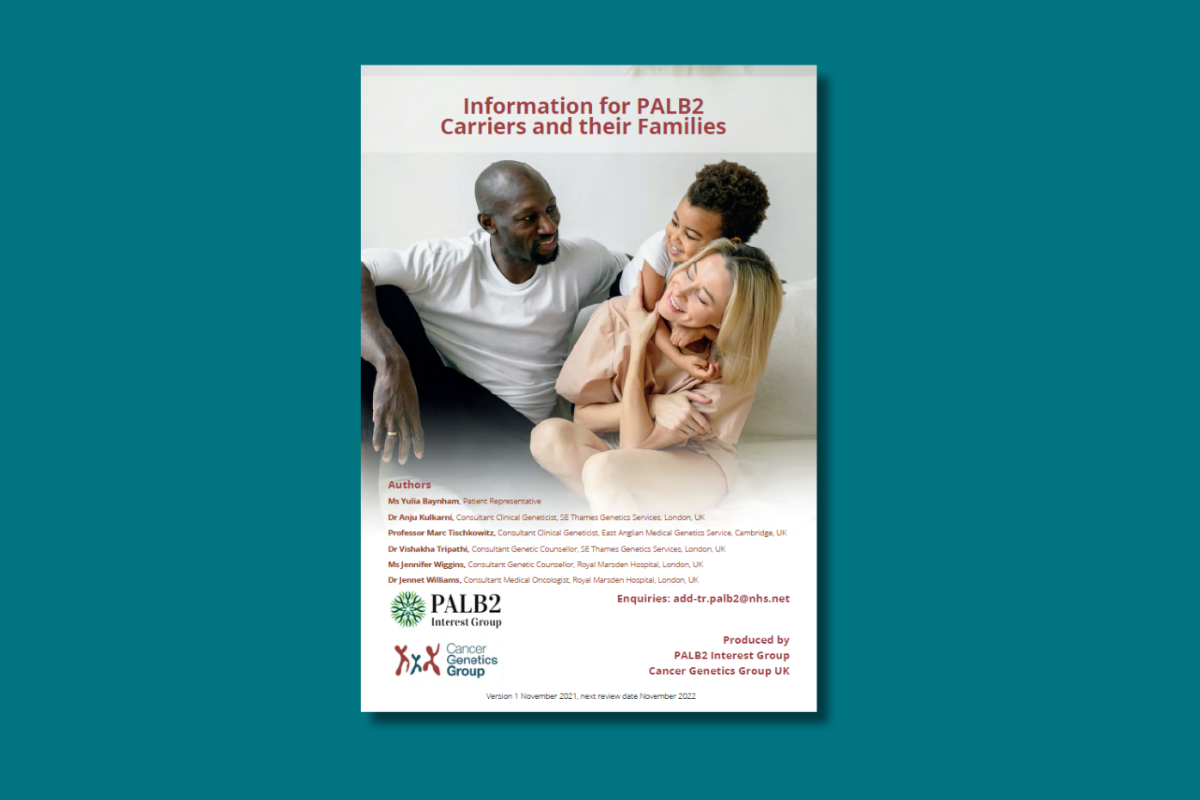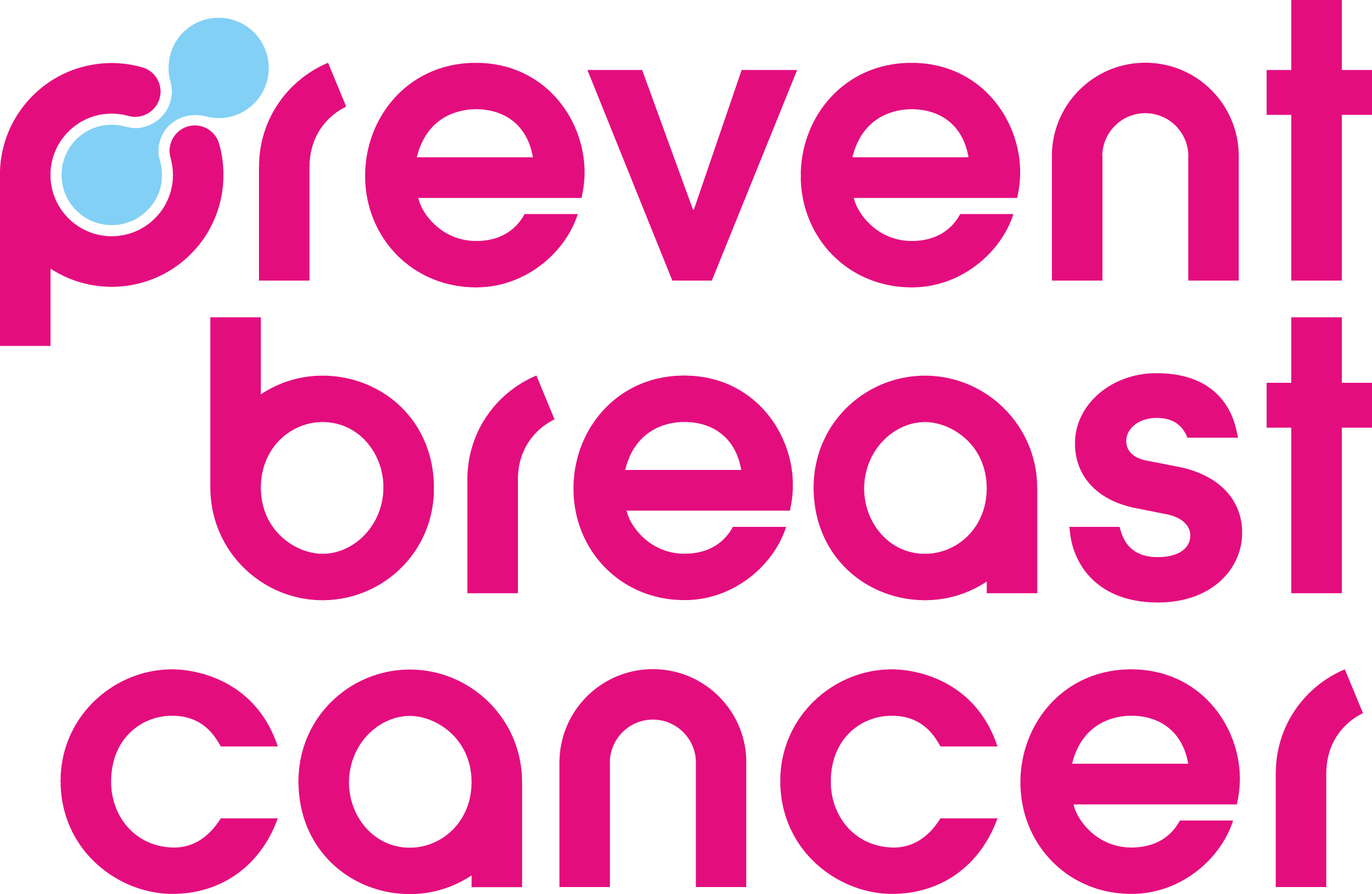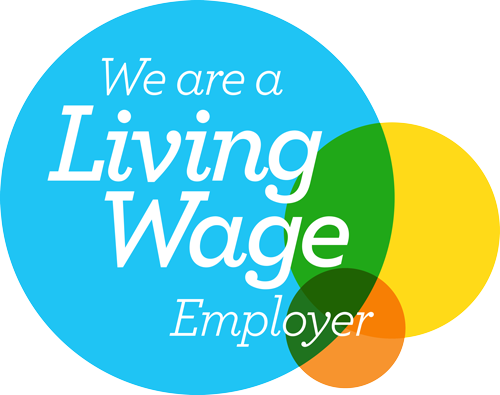PALB2 Gene: Understanding the Mutation & Cancer Risks
On this page you can find information about what the PALB2 gene is, testing for PALB2, the gene’s relationship with breast cancer and other diseases, and more.

What is the PALB2 Gene?
Approximately 1 in 700-1000 people carry a PALB2 alteration and if an individual has an alteration in the PALB2 gene, they have a greatly increased risk of developing breast cancer and a slightly higher risk of ovarian and pancreatic cancer and possibly other cancers.
An alteration refers to a change in the PALB2 gene which stops it carrying out its normal function of protecting cells from turning cancerous. This is why these alterations lead to increased cancer risk. There are other terms used to describe alterations including a PALB2 mutation, a faulty PALB2 gene, a PALB2 pathogenic variant or a likely PALB2 pathogenic variant. These terms all mean the same.
We do not yet fully understand why alterations in the PALB2 genes primarily give a high risk of breast cancer rather than other types of cancer.
The truth is many questions cannot be fully answered as it is still being studied.
Is PALB2 Similar to the BRCA 1 and BRCA 2 Genes?
There are several genes, including the more well-known BRCA1 and BRCA2 that, if altered so they don’t work properly, can cause a high risk of breast cancer. PALB2 is one of these genes. BRCA received elevation in status and became more familiar to the general public when Angelina Jolie tested positive for the mutated BRCA1 gene and decided to undergo a double preventative mastectomy and shared her experience with the media.
Testing for PALB2
Close relatives of an individual with a PALB2 alteration can ask to be referred to their local genetics service by their GP to access genetic counselling. The genetic counselling process involves talking about PALB2 risks and how they can be managed as well as genetic testing. Your genetics clinician will go through your family tree to show you who in your family is at risk of having the PALB2 alteration.
Testing for the PALB2 in Children
Predictive genetic testing for children is not offered. If you carry a PALB2 alteration, once they are 18 or older, each of your children can choose whether to have genetic testing to find out if they have inherited the PALB2 gene alteration.
Is the PALB2 mutation hereditary?
If you are a carrier of a PALB2 alteration, your close relatives (brothers, sisters, and your children) will have a 50% chance of inheriting the PALB2 alteration and it is highly likely to have been present in your family for many generations. It is only now that scientists can identify who carries PALB2 alterations. You would almost certainly have inherited the alteration from either your mother or your father. It is extremely rare for a person to carry a PALB2 alteration which has not been inherited from one of their parents.
Remember, having the alteration doesn’t mean you or your family member will develop cancer. The risk of breast cancer in women for instance is around 50% and in men only 1%.
If you do need cancer treatment your oncology team will need to know you have a PALB2 alteration as it may change the treatment you are offered.
PALB2 and Breast Cancer
As women who have a PALB2 alterations have an increased lifetime risk of breast cancer, breast screening using MRI scans and/or mammograms is recommended from at least 30 years of age. The screening aims to pick up breast cancer at an early stage when it is easier to treat. Breast screening does not change the breast cancer risk. Breast screening is provided through the NHS breast screening service and cannot prevent the cancer occurring.
All women who carry a PALB2 alteration can receive annual breast screening with MRI scans from age 30.
Risk Reducing Surgery
If you have the PALB2 alteration you may wish to consider having both breasts removed – called risk reducing mastectomies. This involves removal of the breast tissue to try to prevent the development of cancer. There are various types of operation, but – in general – as much as possible of the breast tissue is removed.
Preventable Drugs and Diet
We do not have data to know whether drugs like tamoxifen and anastrozole work well for PALB2 alteration carriers. However, these drugs are known to reduce the risk of oestrogen sensitive breast cancers, and this is the most common type of breast cancer that those with a PALB2 alteration develop. You can discuss risk reducing medication with your clinical team.
It is also not known exactly how lifestyle and diet impacts upon cancer risk in people with PALB2 alterations, but we recommend eating a healthy balanced diet as recommended mor generally in the NHS.
PALB2 Breast Cancer Risks for Men
Men who have a PALB2 alteration have a raised risk of breast cancer compared to men who do not have a PALB2 alteration. Approximately 1 man in 100 men (1%) with a PALB2 alteration will develop breast cancer. There is no breast cancer surveillance for men. Men should be breast aware and report any changes in their breast tissue to their GP.
Other Cancers Associated with PALB2
Both men and women who have a PALB2 alteration have a slightly increased risk of pancreatic cancer. If you have a PALB2 alteration it is important to not smoke, cut down on alcohol consumption and maintain a healthy weight as these are also risk factors for pancreatic cancer. Currently there is no proven test or group of tests that can reliably diagnose pancreatic cancer at an early stage. Therefore, no routine surveillance for pancreatic cancer is currently available.
More Information and Support around PALB2
You can find out more about PALB2 in the PALB2 Interest Group. A comprehensive PALB2 information brochure is also available to download for PALB2 Carriers and their families.
If you’ve recently tested positive for a PALB2 alteration, you may find PALB2 Warriors on Facebook a useful tool.
For any further help around the PALB2 Gene or other hereditary genes, please do not hesitate to ring the National Hereditary Telephone line on 01629 813000.
If you’re on Instagram, make sure to follow @notjustBRCA. Not just BRCA are two sisters who have been impacted by PALB2 and have made it their mission to raise awareness of all mutations linked to breast cancer and other cancers.
#NotJustBRCA
If you’re on Instagram, make sure to follow @notjustBRCA. Not just BRCA are two sisters who have been impacted by PALB2 and have made it their mission to raise awareness of all mutations linked to breast cancer and other cancers.
About Prevent Breast Cancer
Prevent Breast Cancer is the only UK charity entirely dedicated to the prediction and prevention of breast cancer – we’re committed to freeing the world from the disease altogether. Unlike many cancer charities, we’re focused on preventing, rather than curing. Promoting early diagnosis, screening and lifestyle changes, we believe we can stop the problem before it starts. And being situated at the only breast cancer prevention centre in the UK, we’re right at the front-line in the fight against the disease. Join us today and help us create a future free from breast cancer. If you have any questions or concerns, email us today.
on January 21, 2023.
on August 1, 2023.





